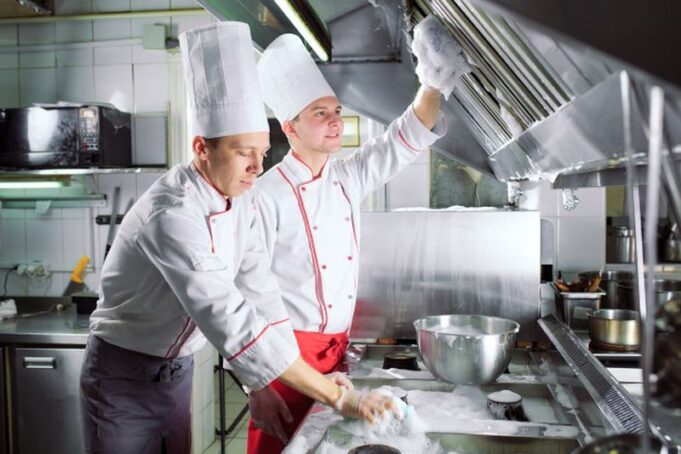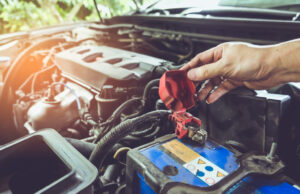If you own or manage a restaurant, you presumably realize the importance of having a clean kitchen hood. Besides allowing you to pass the health and fire prevention inspections, it’ll also ensure something that is more important – it’ll guarantee that you cook the food in a neat and healthy environment.
However, if you never had to go through this process before, you may be wondering – how often do I need to schedule a restaurant hood washing? Fortunately, the article below will have the answer for you. So, without further ado, let’s look at the concept behind kitchen ventilation, how often does it need to be cleaned, as well as the perks you can gain:
The Concept Behind Kitchen Ventilation Systems
No matter what size or layout of your kitchen is, the concept behind its ventilation system will be the same. Contaminated air coming from the fumes will be replaced with fresh air. Since there will be a lot of contaminated air moving through tight spaces. The performance and efficiency of the entire system will depend on a few things, including the construction, installation, design, as well as how often you have washed it.
Now, you should know that the standards for ventilation in the food industry are different and more daunting than traditional systems, mostly because of the contaminated air it exhausts. After all, there will be smokey and greasy vapors coming from the cooking, hence, the buildup must be removed from the structure in order for your restaurant to comply with the laws and statutes of the local government.
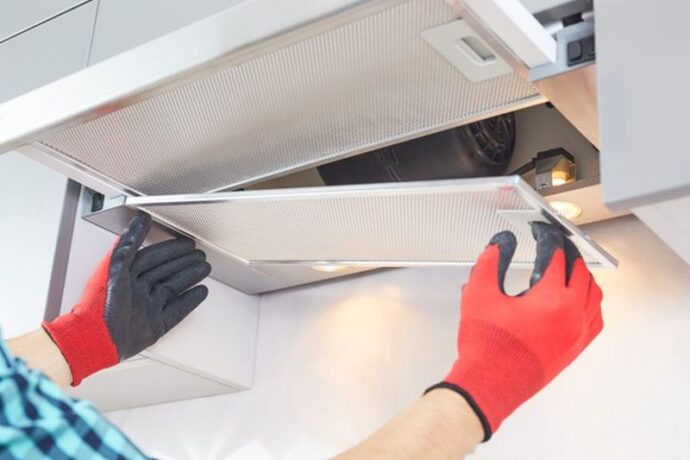
So, Why Does it Have to Be Maintained?
As you already know, cooking will produce a lot of smoke, moisture, as well as grease. When you turn the exhaust on, each of these substances will be drawn into the exhaust, they’ll be processed by the filers, and they’ll surely build up in the ducts over a long period of time. Once it has been building up for some time, these substances will become fire hazards, which is something that you can prevent by maintaining it frequently.
How can a fire start? Well, for example, there might be a high flame that’ll enter the exhaust where it’ll come in contact with the filters. Once they reach them, they will ignite. Since the fan will be drawing air into the system, it’ll also draw the flame into the ducts. If there is a lot of grease residue in the ducts, it’ll basically act as fuel for the fire, which means that it can quickly spread to the rest of the system and your building.
When Do I Need to Schedule The Maintenance?
According to the professionals from www.hoodcleaningservicesatlanta.com, there are various factors that’ll contribute to how often you have to cleanse the hood located in your restaurant kitchen. In order for you to understand when and how frequently you’ll need to schedule the washing, they recommend that you think about the volume of the cooking, as well as the type of food you’re preparing. So, you must keep in mind the following factors:
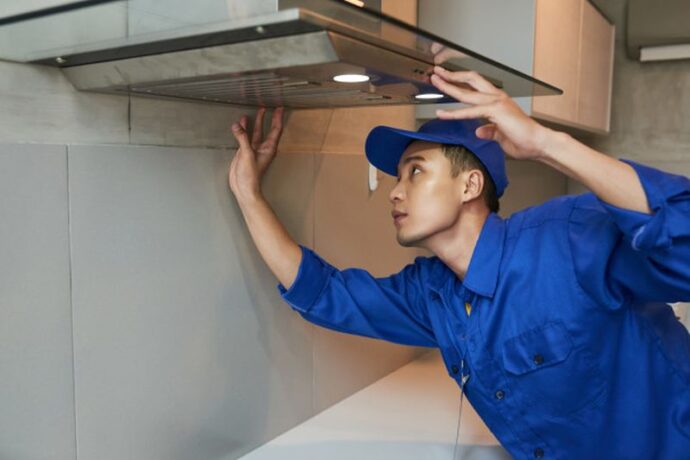
- Schedule it Once a Month – now, if you run a fast-food restaurant that is open 24/7, if you utilize charcoal- or wood-burning stoves, or if you operate 24 hours a day, you’ll have to guarantee that you maintain your exhaust hood once a month. After all, it’s probable that you make a lot of greasy food, which is exactly why you have to ensure that it is clean and maintained.
- Once in Three Months – if you have high or average traffic in your eatery, or if you operate on a 24/7 schedule, you should wash the hood once every three months. You should remember, it’ll take less time for the grease to build up, however, you should maintain it quarterly.
- Twice a Year – if you run a pizza parlor or if you have average traffic in your restaurant, where the atmosphere is fancier, you’ll have to clean the hood twice a year. This is why you should ensure that you choose two dates for maintaining the hood, and schedule them as soon as you can.
- Once a Year – If you have installed the hood over an appliance that doesn’t produce any grease fumes, if you only open your establishment seasonally or at specific times, or if you only prepare low quantities of food, you won’t need to maintain the exhaust as much as with other restaurant types. Instead, you can wash it once a year.
What Benefits Can I Gain?
One of the most obvious – and important – benefits of cleaning the hood in your kitchen is that you could prevent fires. However, there are some other perks that you may come across, including things such as:
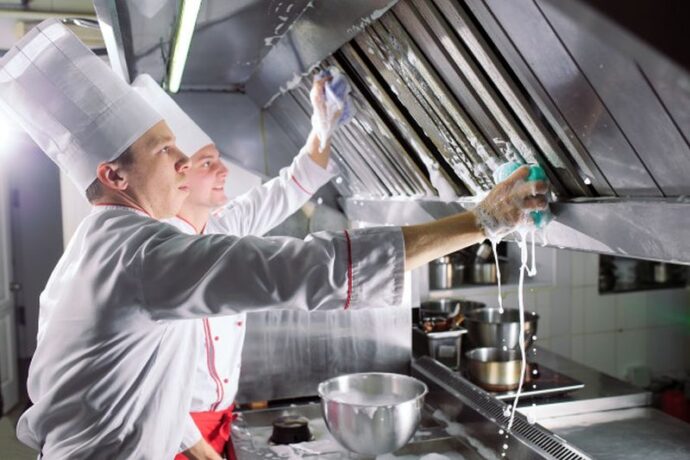
- It’ll Preserve Power – when the ventilation system is clogged, it’ll utilize more power to try to function properly. However, this is something that’ll increase your electricity bills, and it might cause the machine to break down. Hence, by maintaining it regularly, you’ll be capable of saving money on your electricity bills.
- The Food Will Be Healthier – by guaranteeing that your kitchen is clean, you’ll be able to make sure that the food you prepare is healthy for consumption. Besides this, your staff will also feel better, especially since they know that there won’t be any airborne particles that can get them and your patrons ill.
- You Can Avoid Pests – the grease buildup is the perfect place for insects and pests to gather, which is, again, one of the things that you’ll want to avoid at all costs. Scheduling a regular maintenance session will allow you to avoid any pests from appearing in your eatery, resulting in a healthy working environment.
Conclusion
Scheduling a routine exhaust hood cleaning is, perhaps, the essential thing that you could do if you’re run an establishment. Besides guaranteeing that you comply with all the security laws and regulations, it’ll also help you produce high-quality, healthy meals for your patrons.
Hence, now that you’ve learned when and why you should choose to schedule these maintenance processes, you may not want to waste your time. Instead, you may want to start searching for a licensed company that’ll provide you with the services, and that’ll suit your needs and requirements.

